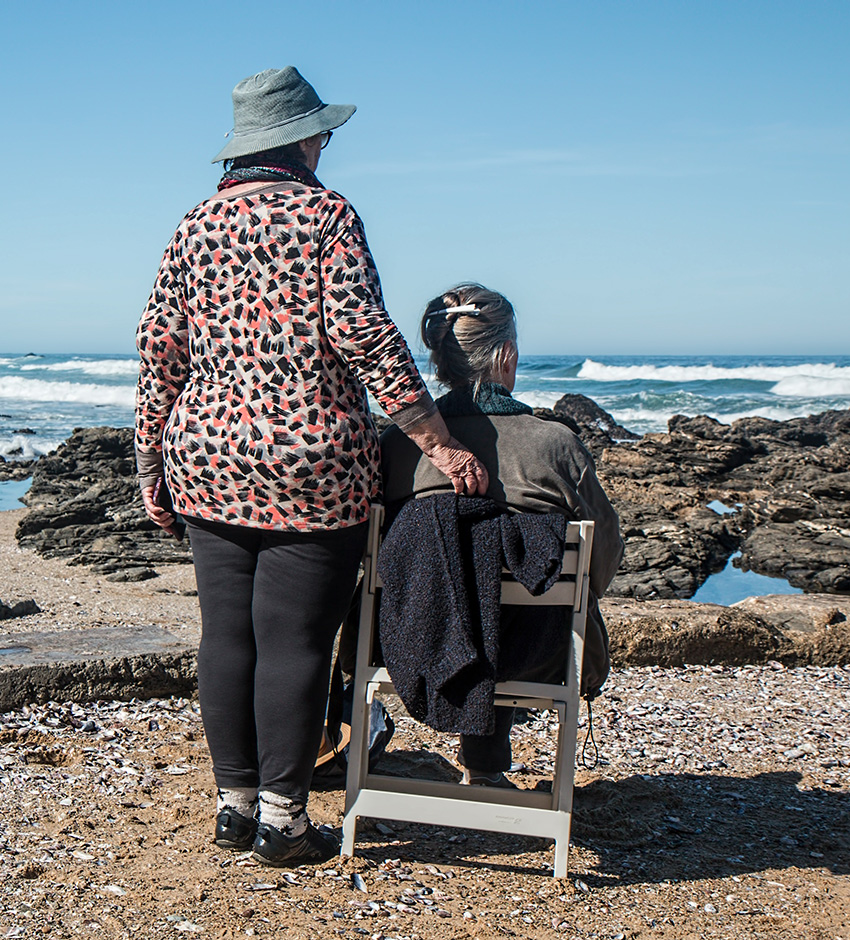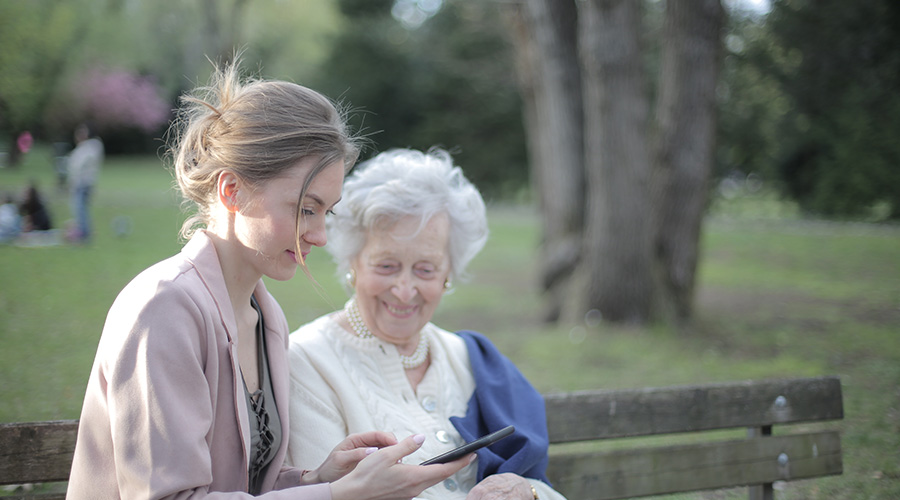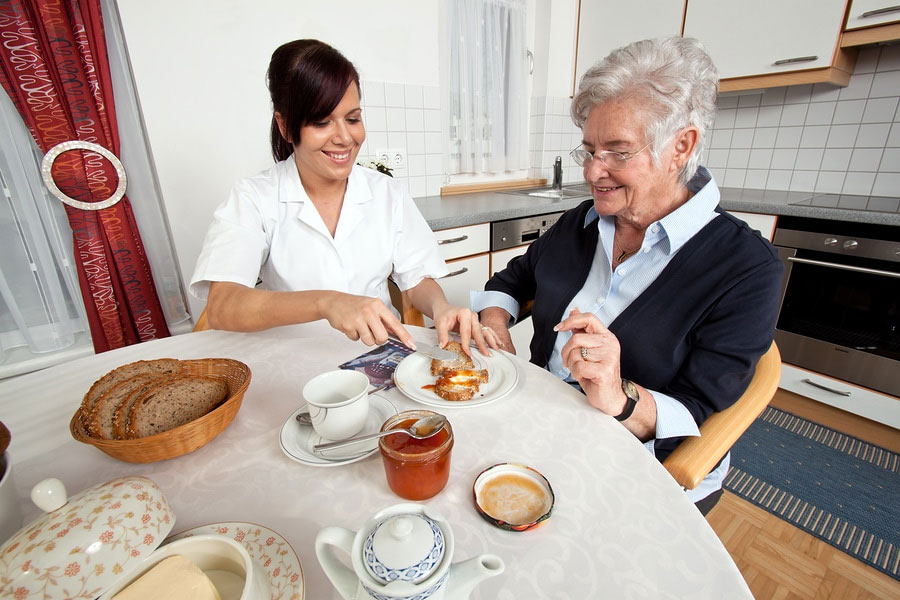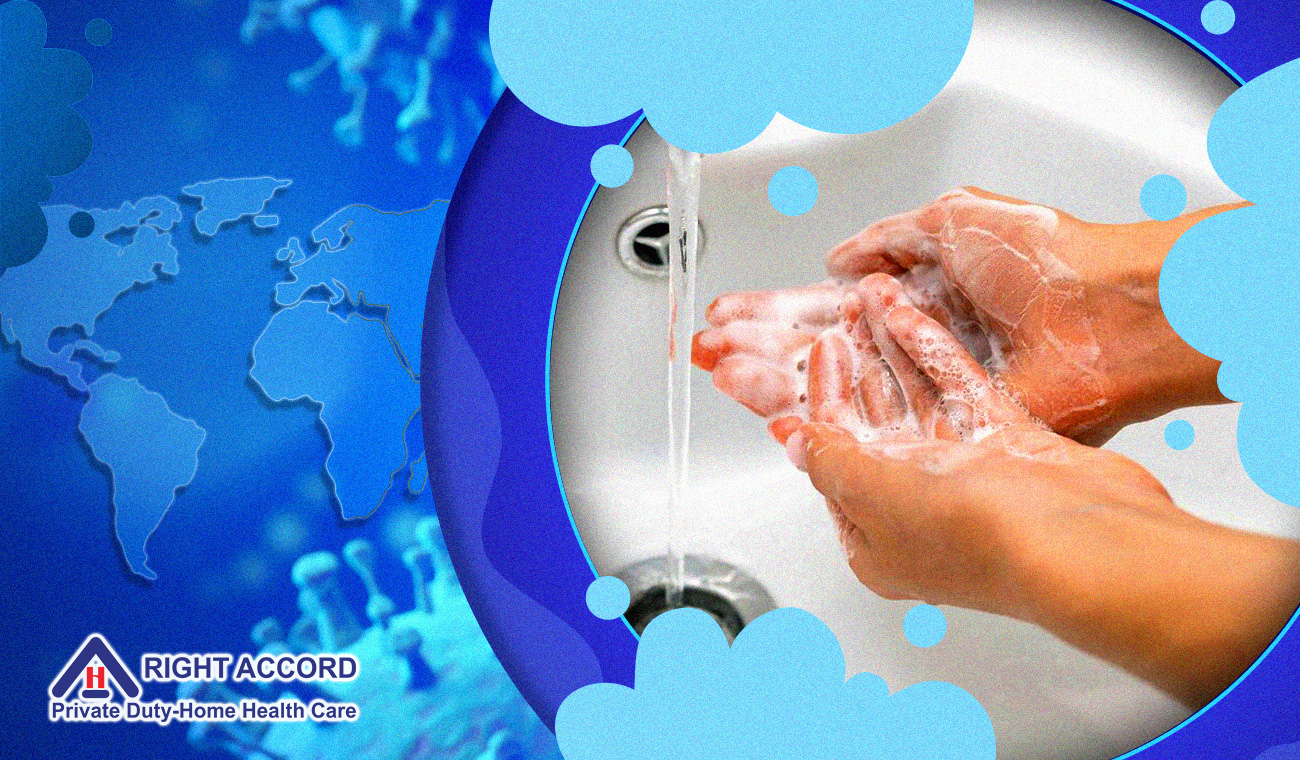· 7 min read
In-Home Senior Cares Guide to Planning & Execution
In-home senior care can provide your loved one with the right care they need. Read more to learn on how to find the perfect caregiver for your senior.

By: Rosemarie Tamunday Casanova — RN, BSN, MHA
As our loved ones age, it’s only natural to want them to receive the best care possible. For many families, that means arranging for In-Home senior care.
However, planning for this experience can be overwhelming and stressful. How do you know what services your loved one needs? How do you find a caregiver who is trustworthy and experienced? And how can you ensure that your loved one is comfortable and happy in their own home? With so many questions and unknowns, it’s easy to feel lost in the process.
But fear not, because in this article we will guide you through the steps of planning the In-Home senior care experience. From assessing your loved one’s needs to finding the right caregiver, we’ve got you covered. So, let’s dive in and ensure that your loved one receives the best care possible in the comfort of their own home.
Assessing Your Loved One’s Needs

Photo by Pixabay
Before you can start planning for in-home senior care, it’s important to assess your loved one’s needs. This includes evaluating their physical, emotional, and mental health. You can start by scheduling a physical exam with their primary care physician.
This will help you understand any medical conditions they have and the level of care they require. You should also take note of any changes in their behavior, such as forgetfulness or confusion.
Once you have a better understanding of their health, you can then evaluate their daily living activities. Can they still perform tasks such as bathing, dressing, and cooking? Do they need assistance with household chores or transportation? These are all important factors to consider when planning for in-home senior care.
It’s important to involve your loved one in this process as much as possible. Ask them about their preferences and what they would like help with. This will help you create a care plan that is tailored to their specific needs and preferences.
Understanding the Different Types of In-Home Senior Care
Once you have assessed your loved one’s needs, you can then start exploring the different types of in-home senior care available. There are several options to choose from, including:
1. Personal Care Services
These services provide assistance with daily living activities such as bathing, grooming, and dressing.
2. Homemaker Services
Homemaker services offer help with household tasks such as cleaning, cooking, and laundry.
3. Skilled Nursing Services
Skilled nursing services are provided by licensed nurses and can include wound care, medication management, and rehabilitation.
4. Companion Services
Companion services offer socialization and companionship for seniors who may be lonely or isolated.
It’s important to understand the differences between these services and determine which ones your loved one requires. You may also want to consider a combination of services to provide comprehensive care.
Finding the Right Caregiver
Finding the right caregiver is crucial to ensure that your loved one receives quality care. There are several ways to find a caregiver, including:
1. Referrals
Ask for referrals from friends, family, or healthcare professionals. They may know of a caregiver who is trustworthy and experienced.
2. Online Job Boards
Online job boards such as Care.com or Indeed can help you find caregivers in your area. Be sure to conduct thorough background checks and interviews before hiring anyone.
3. Home Care Agencies
Home care agencies employ caregivers who have been thoroughly vetted and trained. They can provide comprehensive care plans and handle all administrative tasks.
When hiring a caregiver, it’s important to conduct interviews and background checks to ensure that they are a good fit for your loved one. You should also set clear expectations and boundaries to ensure that everyone is on the same page.

Photo by Andrea Piacquadio on Pexels
Conducting Interviews and Background Checks
When conducting interviews with potential caregivers, be sure to ask questions about their experience, qualifications, and approach to care. You should also ask for references and follow up with them to get a better understanding of the caregiver’s work ethic and reliability.
Background checks are also important to ensure that the caregiver has a clean record. This can include criminal background checks, driving records, and drug screenings. Don’t be afraid to ask for these checks before hiring a caregiver.
Setting Expectations and Boundaries
Once you have hired a caregiver, it’s important to set clear expectations and boundaries. This includes discussing their duties, work schedule, and compensation. You should also establish protocols for emergencies and communication.
It’s also important to respect your loved one’s privacy and independence. Encourage them to maintain their hobbies and interests, and ensure that the caregiver understands their preferences.
Creating a Care Plan
Creating a care plan is crucial to ensure that your loved one receives the care they need. This plan should include details about their medical conditions, daily living activities, and preferences. It should also include a schedule of caregiver duties and any other important information.
You should review the care plan regularly and make adjustments as needed. This will ensure that your loved one’s needs are being met and that they are receiving quality care.
Ensuring Comfort and Safety in the Home
It’s important to ensure that your loved one is comfortable and safe in their own home. This may include making modifications to their living space, such as installing grab bars or removing tripping hazards.
You should also ensure that the caregiver is trained to handle any medical emergencies or safety concerns. This may include providing training on how to use medical equipment or administering medications.
Incorporating Social Activities and Hobbies
In addition to providing medical care, it’s important to encourage socialization and hobbies for your loved one. This may include arranging for visits from friends and family, or organizing outings to local events or activities.
Encouraging hobbies and interests can also help your loved one maintain their cognitive abilities and overall well-being.
Monitoring and Adjusting the Care Plan as Needed

Photo by Kampus on Pexels
As your loved one’s health and needs change, it’s important to monitor and adjust the care plan as needed. This may include increasing or decreasing the level of care they require, or modifying the caregiver’s duties.
Regular communication with your loved one and the caregiver can help identify any changes that need to be made to the care plan.
Conclusion and Final Tips for a Successful In-Home Senior Care Experience
In-home senior care can provide your loved one with the care they need while allowing them to maintain their independence and dignity. By assessing their needs, finding the right caregiver, and creating a comprehensive care plan, you can ensure that your loved one receives quality care in the comfort of their own home.
Remember to stay involved in the process and communicate regularly with your loved one and the caregiver. This will help ensure that everyone is on the same page and that your loved one’s needs are being met.
In summary, some final tips for a successful in-home senior care experience include:
- Assess your loved one’s needs and involve them in the process as much as possible.
- Understand the different types of in-home senior care and determine which ones your loved one requires.
- Conduct thorough interviews and background checks before hiring a caregiver.
- Set clear expectations and boundaries to ensure that everyone is on the same page.
- Create a comprehensive care plan and review it regularly.
- Ensure that your loved one is comfortable and safe in their own home.
- Encourage socialization and hobbies to maintain their cognitive abilities and overall well-being.
- Monitor and adjust the care plan as needed.



